December 5 stands as one of history’s most eventful days, witnessing the rise and fall of empires, groundbreaking discoveries, and moments that shaped our modern world across centuries of human achievement.

Politics and Government Events on December 5
1933 – Twenty-first Amendment Ratified, Ending Prohibition
The United States Constitution gained its twenty-first amendment on this date, officially repealing the nationwide prohibition of alcohol. American lawmakers reversed one of the most controversial social experiments in the nation’s history.
The amendment restored individual states’ rights to regulate alcohol within their borders. This historic reversal demonstrated the Constitution’s capacity for self-correction through democratic processes.
1936 – Soviet Union Adopts New Constitution
The Soviet Union implemented a comprehensive new constitution that restructured the federal system. The Kirghiz Soviet Socialist Republic achieved full Union Republic status within the USSR framework.
This constitutional reform represented Stalin’s efforts to modernize the Soviet governmental structure. The changes affected millions of citizens across the vast Soviet territories.
1941 – Great Britain Declares War on Axis Nations
Britain formally declared war against Finland, Hungary, and Romania during World War II. Prime Minister Winston Churchill expanded the conflict to include these Axis-aligned nations.
The declarations followed mounting pressure from the Soviet Union regarding these countries’ military cooperation with Nazi Germany. Britain’s diplomatic relationships across Eastern Europe shifted dramatically.
1977 – Egypt Breaks Diplomatic Relations with Arab Nations
Egypt severed diplomatic ties with Syria, Libya, Algeria, Iraq, and South Yemen in retaliation for their opposition to peace negotiations with Israel. President Anwar Sadat’s bold diplomatic stance isolated Egypt within the Arab world.
The diplomatic rupture followed the Tripoli conference where these nations attempted to prevent Sadat from pursuing separate peace talks. Egypt’s isolation would persist for years following this decisive moment.
1991 – Leonid Kravchuk Elected First President of Ukraine
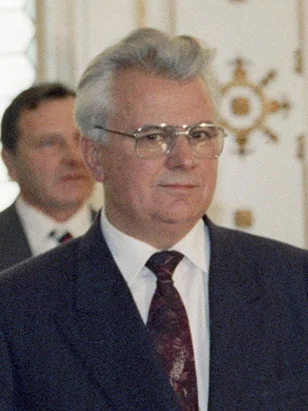
Ukraine held its first presidential election, with Leonid Kravchuk emerging victorious as the nation’s inaugural president. This democratic milestone occurred during the Soviet Union’s final dissolution period.
Kravchuk’s election represented Ukraine’s decisive step toward full independence from Moscow’s control. The results reflected the Ukrainian people’s overwhelming desire for national sovereignty.
2006 – Commodore Bainimarama Overthrows Fiji Government

Commodore Frank Bainimarama executed a military coup in Fiji, removing the elected government from power. The military takeover ended years of political tension between the military and civilian leadership.
Bainimarama justified the coup as necessary to combat corruption and restore democratic principles. The international community condemned the military intervention and imposed diplomatic sanctions.
Military and Naval History on December 5
1934 – Italian Forces Attack Wal Wal in Abyssinia
Italian troops launched their assault on the Ethiopian stronghold of Wal Wal, marking a significant escalation in the Abyssinia Crisis. The attack required four days of intense fighting before Italian forces captured the strategic city.
This military action represented Mussolini’s aggressive expansion into East Africa. The conquest of Wal Wal demonstrated Italy’s determination to build a modern colonial empire.
1941 – Soviet Counter-Attack at Battle of Moscow
General Georgy Zhukov launched a massive Soviet counter-offensive against German forces threatening Moscow during World War II. The surprise attack caught Wehrmacht units unprepared for the fierce winter resistance.
Soviet forces utilized their superior knowledge of winter warfare conditions to devastating effect. This counter-attack marked the beginning of Germany’s first major defeat on the Eastern Front.
1943 – Operation Crossbow Begins Against German Secret Weapons
Allied air forces initiated Operation Crossbow, targeting Germany’s secret weapons development facilities across occupied Europe. The coordinated bombing campaign aimed to disrupt Nazi rocket and missile production.
Intelligence reports had revealed German development of revolutionary weapons systems including the V-1 and V-2 rockets. The operation represented Allied determination to prevent German technological advantages.
1971 – Battle of Gazipur Results in Pakistani Defeat
Indian forces achieved decisive victory over Pakistani troops in the Battle of Gazipur during the Bangladesh Liberation War. The successful offensive led to India ceding Gazipur territory to the newly emerging nation of Bangladesh.
The battle represented a crucial turning point in the broader Indo-Pakistani conflict. Pakistani forces found themselves increasingly unable to maintain control over East Pakistan territories.
1995 – Sri Lankan Government Conquers Tamil Stronghold
Sri Lankan government forces announced the successful conquest of Jaffna, the primary Tamil stronghold in the country’s civil war. The military victory represented a significant blow to Tamil separatist ambitions.
The capture of Jaffna marked the government’s most substantial territorial gain in years of conflict. Tamil forces retreated to secondary positions throughout the northern regions.
Science and Discovery Milestones on December 5
1914 – Imperial Trans-Antarctic Expedition Begins
The Imperial Trans-Antarctic Expedition embarked on its historic attempt to achieve the first complete land crossing of Antarctica. Led by Ernest Shackleton, the expedition represented humanity’s boldest polar exploration effort.
The team faced unprecedented challenges crossing the world’s most inhospitable continent. Their journey would become one of history’s greatest survival stories despite failing to achieve its primary objective.
1964 – Major Histocompatibility Complex Discovery
Lloyd J. Old made a groundbreaking scientific discovery by identifying the first linkage between the major histocompatibility complex and disease in mouse leukemia research. His work opened revolutionary pathways for understanding immune system responses.
This discovery fundamentally changed medical science’s approach to immunology and transplant medicine. Old’s research laid the foundation for modern organ transplantation and cancer immunotherapy treatments.
2001 – Space Shuttle Endeavour Launches to International Space Station

Space Shuttle Endeavour launched on mission STS-108, carrying the Expedition 4 crew to the International Space Station. The mission represented continued international cooperation in space exploration.
The crew rotation ensured continuous human presence aboard the orbiting laboratory. Endeavour’s successful mission advanced numerous scientific experiments in microgravity conditions.
2014 – Orion Spacecraft Completes First Test Flight

NASA’s Orion spacecraft completed its inaugural test flight, Exploration Flight Test-1, marking a crucial milestone in deep space exploration technology. The unmanned mission tested critical systems designed for future Mars missions.
The successful test demonstrated Orion’s heat shield performance and orbital capabilities. NASA’s new deep space vehicle showed promise for eventual human missions beyond Earth orbit.
Cultural and Arts Events on December 5
1921 – Football Association Bans Women’s Football
The Football Association implemented a comprehensive ban on women’s football matches at league grounds throughout England. The controversial decision would remain in effect for fifty years, severely limiting women’s participation in organized football.
The ban reflected prevailing social attitudes about women’s roles in competitive sports. Thousands of female players found themselves excluded from facilities they had previously used during World War I.
1952 – Great Smog Begins in London
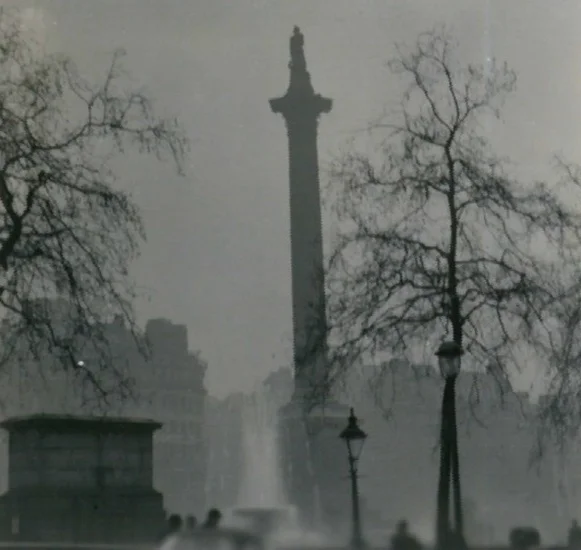
A deadly combination of cold fog and industrial air pollution created the Great Smog that brought London to a complete standstill. The environmental disaster persisted for four days, creating unprecedented urban health crisis.
Later government reports estimated 4,000 fatalities resulted from the toxic atmospheric conditions. The catastrophe led to revolutionary changes in environmental protection legislation.
1958 – Queen Elizabeth II Inaugurates Subscriber Trunk Dialling
Queen Elizabeth II officially inaugurated Britain’s Subscriber Trunk Dialling system by placing the first STD call from Bristol to Edinburgh. The technological advancement revolutionized British telecommunications infrastructure.
The Queen’s ceremonial call to the Lord Provost demonstrated the system’s capability to connect distant cities directly. British citizens gained unprecedented access to long-distance communication services.
Religious and Social Events on December 5
1935 – Mary McLeod Bethune Founds National Council of Negro Women

Mary McLeod Bethune established the National Council of Negro Women in New York City, creating a powerful advocacy organization for African American women’s rights. The founding represented a crucial moment in civil rights organization.
Bethune’s leadership brought together diverse women’s groups under a unified national structure. The organization would become instrumental in advancing educational and economic opportunities for African American women.
1955 – Montgomery Bus Boycott Begins
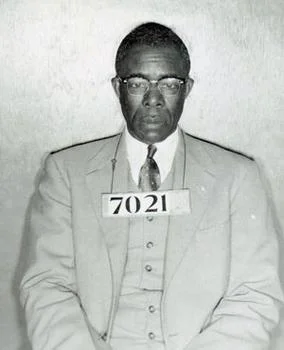
E.D. Nixon and Rosa Parks initiated the Montgomery Bus Boycott, launching one of the most significant protests in American civil rights history. The coordinated action challenged racial segregation in public transportation.
The boycott demonstrated the economic power of organized African American resistance to discriminatory practices. This grassroots movement would inspire similar protests throughout the American South.
2005 – UK Civil Partnership Act Takes Effect
The Civil Partnership Act came into effect throughout the United Kingdom, with the first civil partnership officially registered on this historic date. The legislation granted same-sex couples legal recognition and protection.
The groundbreaking law provided previously unavailable legal rights including inheritance, taxation, and medical decision-making authority. Thousands of couples gained access to formal relationship recognition.
Business and Economic Events on December 5
1955 – AFL and CIO Merge to Form AFL-CIO

The American Federation of Labor and Congress of Industrial Organizations completed their historic merger, creating the AFL-CIO labor union confederation. The consolidation united America’s two largest labor organizations under unified leadership.
The merger represented organized labor’s response to declining membership and increased corporate opposition. Combined union strength provided greater bargaining power in nationwide labor negotiations.
1983 – Argentine Military Junta Dissolves
Argentina’s military junta officially dissolved, ending years of authoritarian rule and paving the way for democratic restoration. The transition marked the conclusion of one of South America’s most repressive military governments.
The dissolution followed mounting economic pressures and public opposition to military rule. Argentine citizens prepared for their first democratic elections in nearly a decade.
1994 – Budapest Memorandum Signed
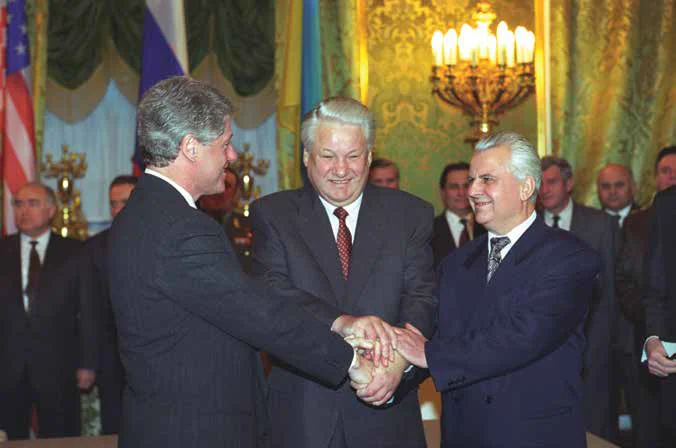
The Budapest Memorandum was signed at the OSCE conference in Budapest, Hungary, establishing security assurances for Ukraine in exchange for nuclear disarmament. The agreement involved major world powers including the United States, Russia, and United Kingdom.
Ukraine agreed to surrender its nuclear weapons in return for territorial integrity guarantees. The memorandum represented post-Cold War nuclear non-proliferation efforts.
Transportation and Infrastructure on December 5
1945 – Flight 19 Disappears in Bermuda Triangle
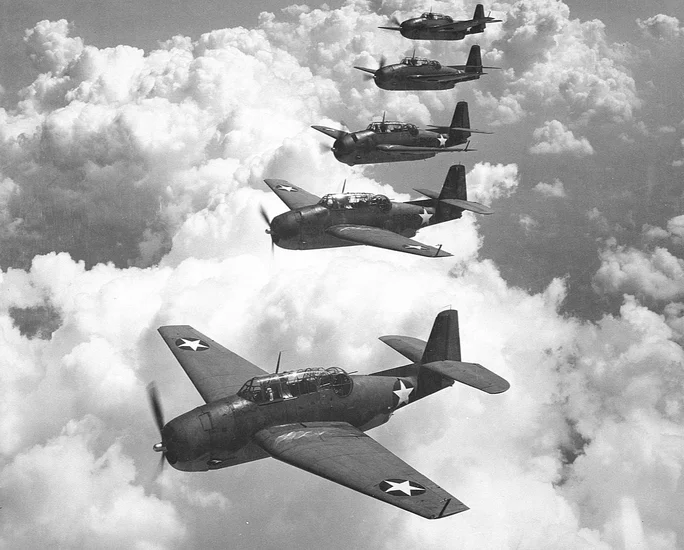
Flight 19, consisting of five TBF Avenger aircraft, vanished without trace in the area known as the Bermuda Triangle. The mysterious disappearance sparked decades of speculation about the region’s unusual phenomena.
The training flight had departed from Naval Air Station Fort Lauderdale on a routine navigation exercise. Despite extensive search efforts, no wreckage or crew members were ever recovered.
1958 – Preston By-pass Opens as UK’s First Motorway
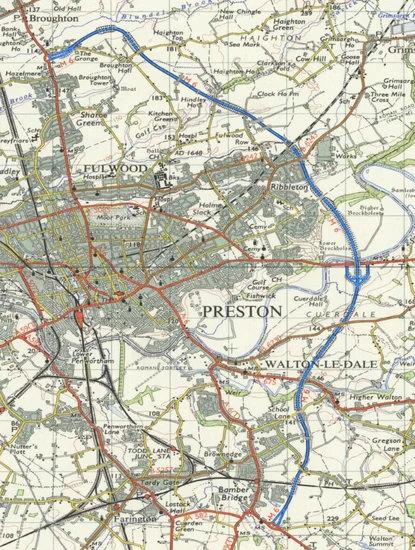
The Preston By-pass opened to traffic as the United Kingdom’s first stretch of motorway, revolutionizing British transportation infrastructure. The road would eventually become part of the M6 and M55 motorway network.
The motorway’s opening marked Britain’s entry into the modern highway era. The success of the Preston By-pass demonstrated the viability of high-speed road networks throughout the country.
1995 – Azerbaijan Airlines Flight A-56 Crashes

Azerbaijan Airlines Flight A-56 crashed near Nakhchivan International Airport in Azerbaijan, killing all 52 people aboard. The tragic accident highlighted ongoing aviation safety concerns in the former Soviet republics.
The crash occurred during the aircraft’s approach to Nakhchivan Airport in challenging weather conditions. Investigation revealed multiple factors contributing to the aviation disaster.
Sports and Recreation on December 5
1964 – Captain Roger Donlon Receives First Vietnam War Medal of Honor
Captain Roger Donlon became the first recipient of the Medal of Honor during the Vietnam War, recognized for extraordinary heroism in earlier combat operations. The ceremony honored his exceptional courage under enemy fire.
Donlon’s actions at Nam Dong Special Forces Camp exemplified the highest standards of military valor. His recognition marked the beginning of Medal of Honor awards throughout the Vietnam conflict.
2017 – IOC Bans Russia from 2018 Winter Olympics
The International Olympic Committee imposed a comprehensive ban on Russia’s participation in the 2018 Winter Olympics due to systematic doping violations during the 2014 Sochi Games. The unprecedented punishment shocked the international sports community.
The ban followed extensive investigation into state-sponsored doping programs affecting multiple sports. Individual Russian athletes could compete under strict conditions as neutral participants.
2007 – Westroads Mall Shooting Tragedy

Nineteen-year-old Robert Hawkins killed nine people, including himself, during a shooting at Von Maur department store in Omaha, Nebraska’s Westroads Mall. The tragic incident highlighted growing concerns about public safety in American shopping centers.
The shooting occurred during the busy holiday shopping season, traumatizing families and communities. The incident prompted renewed discussions about mental health resources and gun violence prevention.
Notable Births on December 5
1901 – Walt Disney Born
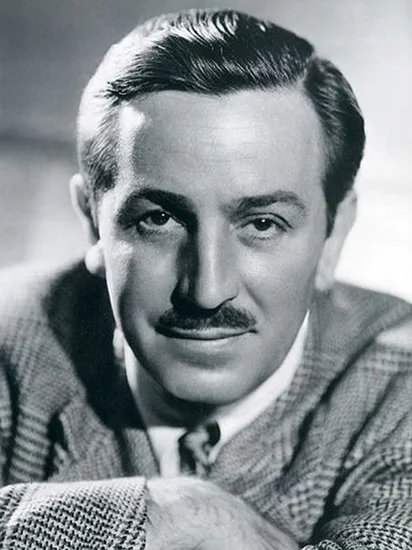
Walt Disney, American animator, director, producer, and screenwriter, entered the world in Chicago, Illinois. His childhood fascination with drawing and storytelling shaped his revolutionary approach to entertainment.
Disney would co-found The Walt Disney Company and transform animation into a sophisticated art form. His creative vision established the foundation for modern animated entertainment and theme park experiences.
1901 – Werner Heisenberg Born
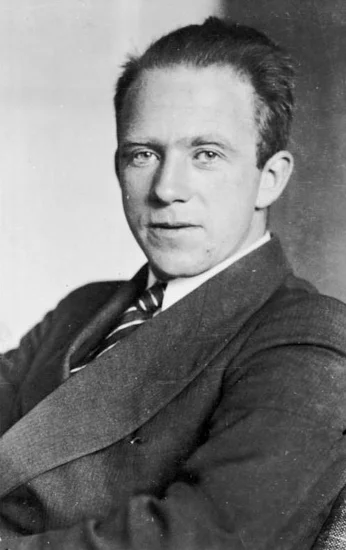
Werner Heisenberg, German physicist and future Nobel Prize laureate, was born in Würzburg, Germany. His early interest in mathematics and physics led to groundbreaking contributions to quantum mechanics.
Heisenberg would formulate the uncertainty principle, fundamentally changing scientific understanding of atomic behavior. His theoretical work earned him the Nobel Prize in Physics in 1932.
1927 – King Bhumibol Adulyadej of Thailand Born

Bhumibol Adulyadej, who would become Thailand’s longest-reigning monarch, was born in Cambridge, Massachusetts. His American birth occurred while his father studied at Harvard University.
The future king would reign for seventy years, becoming one of history’s most beloved monarchs. His dedication to Thai development and culture earned him extraordinary respect throughout Southeast Asia.
1932 – Little Richard Born

Little Richard, American singer-songwriter, pianist, and actor, was born Richard Wayne Penniman in Macon, Georgia. His flamboyant performance style and powerful vocals would revolutionize popular music.
Little Richard’s innovative rock and roll sound influenced countless musicians including The Beatles and Elvis Presley. His energetic performances broke down racial barriers in American entertainment.
1934 – Joan Didion Born

Joan Didion, American novelist and screenwriter, was born in Sacramento, California. Her sharp observational skills and distinctive prose style would define literary journalism for generations.
Didion’s works explored American culture with unprecedented psychological insight and social criticism. Her memoirs and novels captured the complexities of modern American life.
1946 – José Carreras Born

José Carreras, Spanish tenor and actor, was born in Barcelona, Spain. His exceptional vocal talent became apparent during his childhood musical education.
Carreras would become one of the Three Tenors alongside Luciano Pavarotti and Plácido Domingo. His performances brought opera to international audiences worldwide.
1975 – Ronnie O’Sullivan Born

Ronnie O’Sullivan, English snooker player and radio host, was born in Wordsley, England. His natural talent for snooker became evident during his early teenage years.
O’Sullivan would become one of snooker’s greatest champions, winning multiple World Championships. His attacking style and quick play revolutionized professional snooker competition.
1985 – Frankie Muniz Born

Frankie Muniz, American actor, drummer, and race car driver, was born in Wood-Ridge, New Jersey. His early acting talent led to starring roles in television and film.
Muniz achieved international fame starring in the television series “Malcolm in the Middle.” His diverse career expanded to include professional racing and musical performance.
Notable Deaths on December 5
1926 – Claude Monet Dies
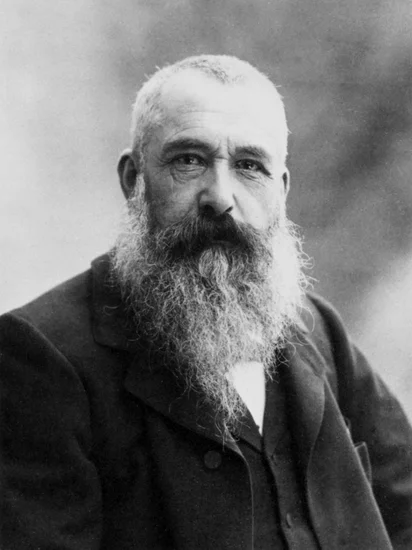
Claude Monet, French Impressionist painter, died at age 86 in Giverny, France. His revolutionary painting techniques had fundamentally transformed artistic expression and perception.
Monet’s water lily paintings and cathedral series demonstrated his mastery of light and color. His artistic innovations inspired generations of painters and established Impressionism as a major movement.
1951 – Shoeless Joe Jackson Dies
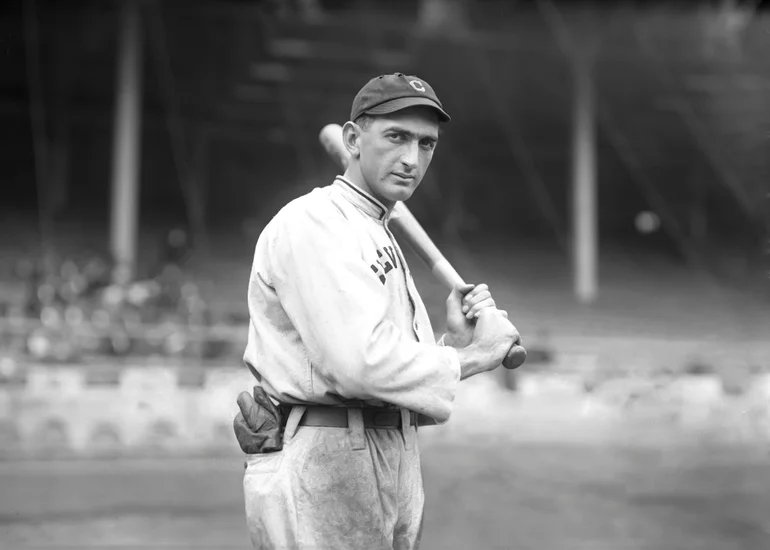
Shoeless Joe Jackson, American baseball player and manager, died at age 63 in Greenville, South Carolina. His exceptional batting ability had made him one of baseball’s greatest natural talents.
Jackson’s career was overshadowed by the Black Sox Scandal of 1919, though many historians question his actual involvement. His .356 lifetime batting average remains among baseball’s highest.
1963 – Huseyn Shaheed Suhrawardy Dies

Huseyn Shaheed Suhrawardy, Pakistani lawyer and politician who served as the fifth Prime Minister of Pakistan, died at age 71 in Beirut, Lebanon. His political career spanned the independence movement and early Pakistani governance.
Suhrawardy played crucial roles in Pakistan’s political development during its formative years. His legal expertise and political acumen helped shape the nation’s constitutional framework.
1973 – Robert Watson-Watt Dies
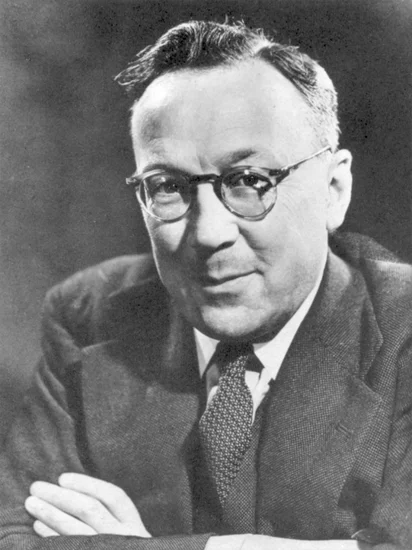
Robert Watson-Watt, Scottish engineer who invented radar technology, died at age 81 in Inverness, Scotland. His revolutionary detection system proved crucial to Allied victory in World War II.
Watson-Watt’s radar development gave Britain decisive advantages during the Battle of Britain. His technological innovations fundamentally changed military strategy and civilian aviation safety.
2012 – Dave Brubeck Dies

Dave Brubeck, American jazz pianist and composer, died at age 91 in Norwalk, Connecticut. His innovative compositions and unusual time signatures revolutionized modern jazz performance.
Brubeck’s “Take Five” became one of the most recognizable jazz compositions in history. His experimental approach to rhythm and harmony influenced countless musicians worldwide.
2012 – Oscar Niemeyer Dies

Oscar Niemeyer, Brazilian architect who designed the United Nations Headquarters and Cathedral of Brasília, died at age 104 in Rio de Janeiro, Brazil. His modernist architectural vision shaped urban landscapes worldwide.
Niemeyer’s flowing, sculptural designs challenged traditional architectural conventions. His work in Brasília earned him recognition as one of the 20th century’s most influential architects.
2013 – Nelson Mandela Dies

Nelson Mandela, South African lawyer, politician, and Nobel Prize laureate who served as the first President of South Africa, died at age 95 in Johannesburg, South Africa. His leadership transformed a nation and inspired global human rights movements.
Mandela’s 27-year imprisonment and subsequent presidency symbolized the triumph of justice over oppression. His commitment to reconciliation prevented civil war and established democratic governance in South Africa.
Holidays and Observances on December 5
International Volunteer Day for Economic and Social Development
The United Nations established International Volunteer Day to recognize the invaluable contributions of volunteers worldwide. The observance highlights volunteer efforts in promoting economic and social development.
Organizations across the globe celebrate volunteer achievements and encourage greater community participation. The day emphasizes volunteerism’s role in addressing global challenges and building stronger societies.
Saint Nicholas’ Eve

Saint Nicholas’ Eve is celebrated across Belgium, Czech Republic, Slovakia, the Netherlands, Hungary, Romania, Germany, Poland, and the United Kingdom. The traditional observance prepares for Saint Nicholas Day celebrations.
Children participate in customs including placing shoes or stockings for Saint Nicholas to fill with gifts. The celebration maintains centuries-old traditions connecting communities to their cultural heritage.
World Soil Day
World Soil Day raises awareness about soil’s crucial role in food security, water filtration, and climate regulation. The observance emphasizes soil conservation’s importance for sustainable agriculture and environmental protection.
Educational programs highlight soil degradation threats and promote sustainable farming practices. The day encourages global cooperation in protecting this essential natural resource for future generations.
The King Bhumibol Adulyadej Memorial Birthday
Thailand observes the late King Bhumibol Adulyadej’s birthday as a national memorial day. The observance honors the beloved monarch’s seventy-year reign and dedication to Thai development.
Thai citizens participate in ceremonies celebrating the king’s contributions to national unity and progress. The memorial day reinforces Thailand’s cultural values and constitutional monarchy traditions.
